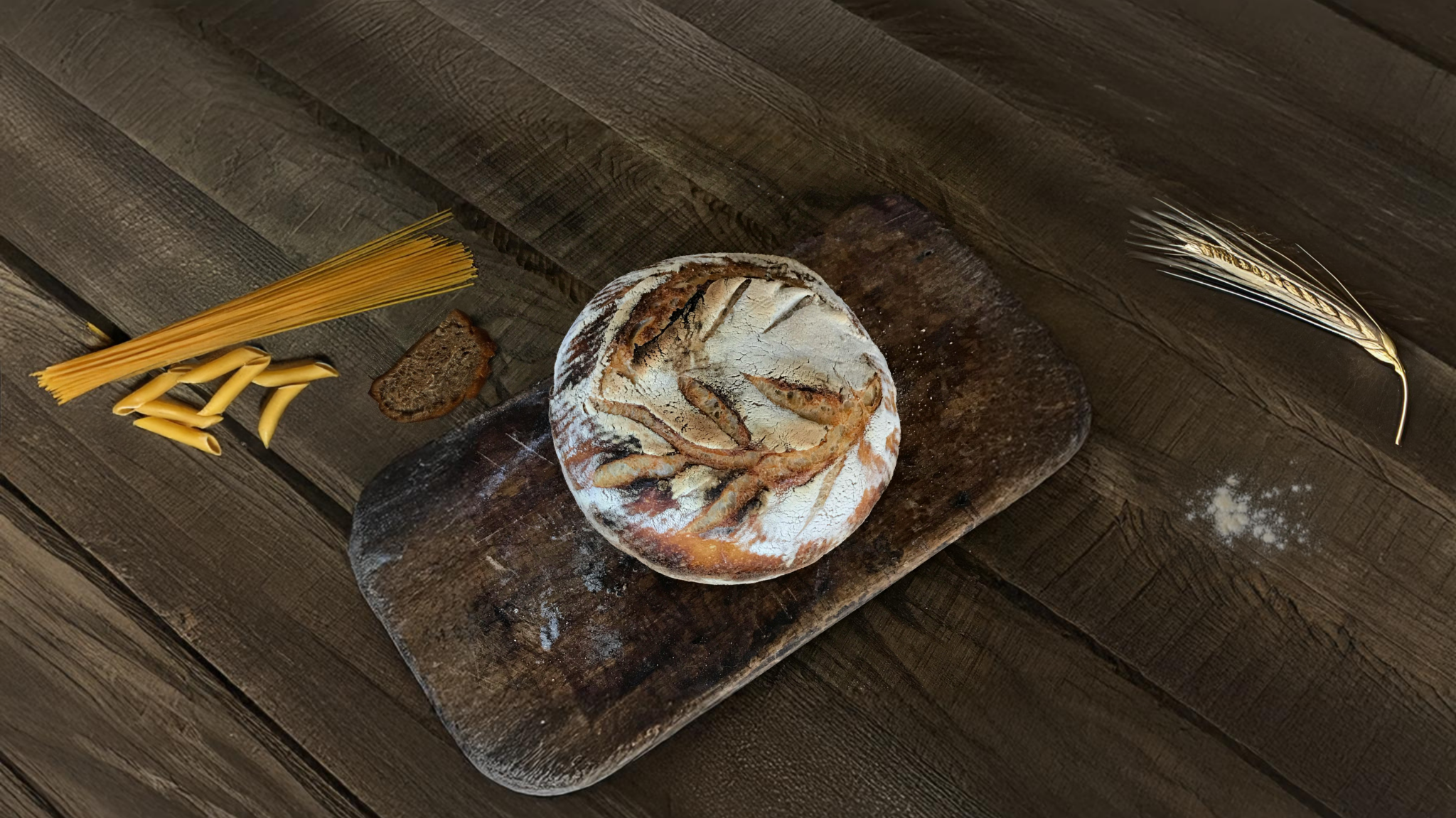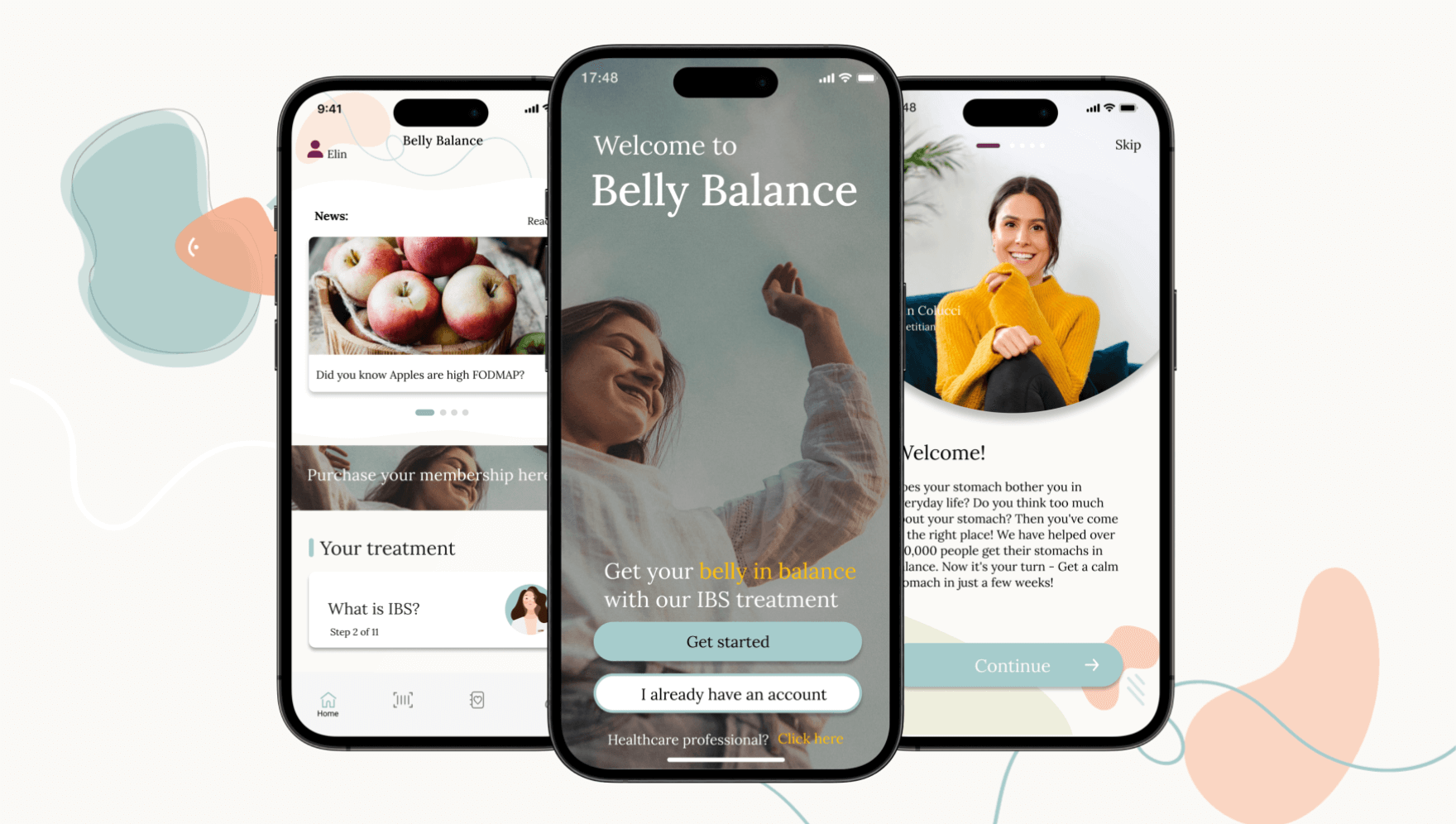
Gluten free food - a strong trend
Currently, eating gluten-free is very popular. Some do it because they are gluten intolerant, while others do it simply because they feel better. But is eating gluten-free really healthier? Well, it depends entirely on the choices you make.
The sales of gluten-free products have increased significantly in recent years, and the number of products has also grown considerably. In Sweden, 11% of the population reports that they actively avoid gluten, while in the USA, the figure is as high as 30%. Since only 1-2% of the population has gluten intolerance or celiac disease, it’s clear that many more people than those with gluten intolerance are buying gluten-free products. Many people find that they feel generally better without gluten, while others notice a direct connection to a calmer stomach.
Gluten does not give you a balloon stomach
When it comes to how your stomach feels, it’s easy to assume that gluten is the culprit, but what actually causes IBS symptoms are the fibers in cereals. Since both gluten and fibers are often removed in gluten-free products, many people with IBS also find that their stomach feels better on a gluten-free diet. The difference is that usually, reducing the intake of cereals is enough to calm the stomach. Those who are gluten intolerant, however, must follow a strict gluten-free diet to avoid damaging the intestines. IBS and gluten intolerance are not the same thing.
Additives in gluten-free products can cause sensitive stomachs to react. Watch out for inulin, oligofructose, soy flour, and lactose. It’s also common for replacement products to be based on starches from rice, wheat, corn, or potatoes. A higher amount of starch, such as in flakes, pasta, or crispbread on the same day, can upset the stomach in those who are sensitive. If you know that your stomach reacts to starches and additives, it might often be better to avoid replacement products and opt for naturally gluten-free or original options, such as a slice of regular sourdough bread, which most people with IBS and sensitive stomachs can tolerate.
Gluten free food is not always healthier
Naturally gluten-free means choosing products that are naturally free from gluten, such as potatoes, rice, root vegetables, fruits, meat, nuts, and seeds. Eating this way usually ensures you get enough nutrients without problems.
On the other hand, if you choose to replace gluten with gluten-free substitutes, it can be less nutritious. You might have stood in front of the gluten-free aisle wondering what to choose, or tried to read the ingredient list, which can be long and filled with unfamiliar terms. Gluten-free replacement products often contain many different ingredients and additives, including flavor enhancers, texture agents, and pure substitutes like sugar and fat. Gluten-free products frequently have more starch than the originals and may also contain more fat and sugar to compensate and improve taste. So, read the packaging carefully and choose wisely.
Four tips to a healthy gluten free life:
Choose naturally gluten-free options such as rice, quinoa, teff, potatoes, root vegetables, seeds, and vegetables instead of cereals.
Limit gluten-free replacement products. It’s fine to eat gluten-free crispbread or pasta occasionally, but not several times a day.
For those with IBS, it’s usually sufficient to reduce the amount of cereals to calm the stomach. Sourdough bread, spelt flour, and oats are gentle on the stomach and work well.
Gluten-free products are not automatically healthier. On the contrary, cookies, biscuits, and flours can contain more sugar and fat than the original products, so it’s best to make other choices.
Sofia Antonsson
Reg. Dietitian, Belly Balance
Read more about

IBS - What is it?
Bloated , constipated or having a gassy stomach? IBS or Irritable Bowel Syndrome is a functional gastrointestinal disorder, meaning no physical issues can be found in the stomach or intestines; they just don’t function quite as they should.

How the app works
Download the app and become part of our community. We assist you in achieving a calm and happy stomach through treatment and tools available directly in the app.

About FODMAP
By learning which foods upset your stomach, you can make conscious choices and get quick symptom relief. With the low FODMAP diet, you receive structured assistance in understanding which foods your body tolerates better than others. No more guessing and pondering – you get the answer straight away!

